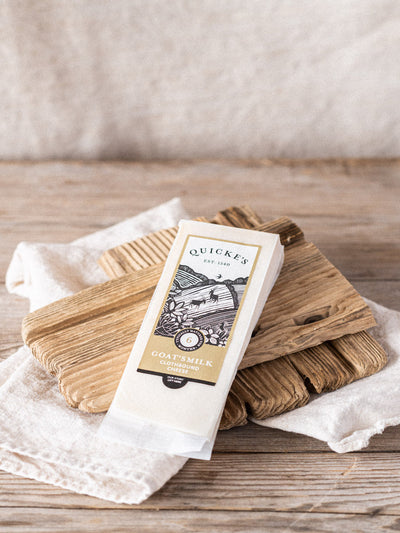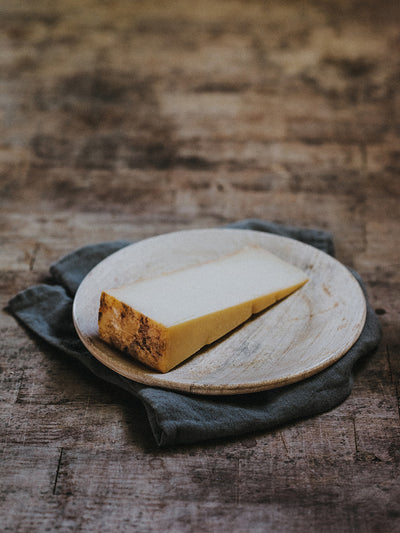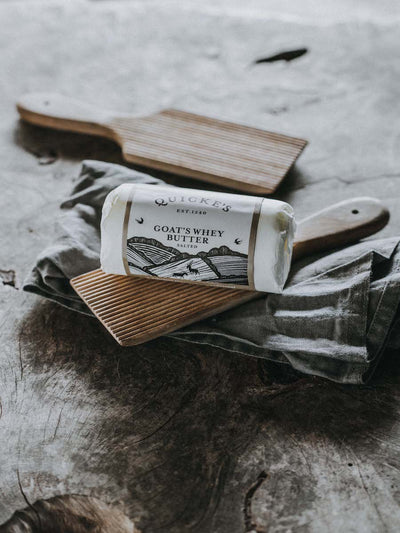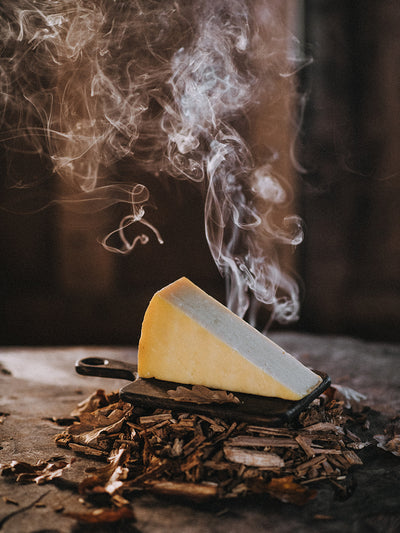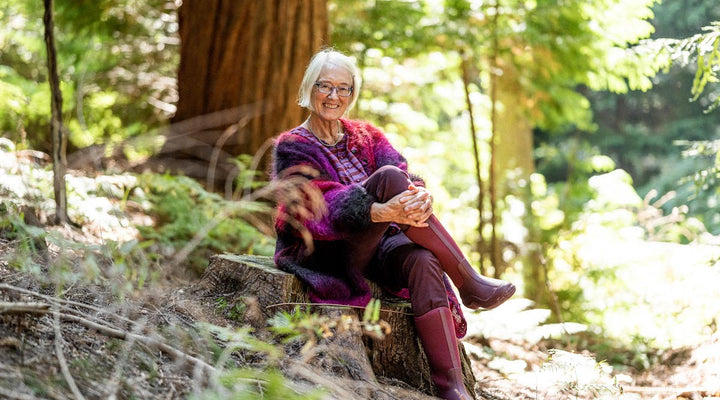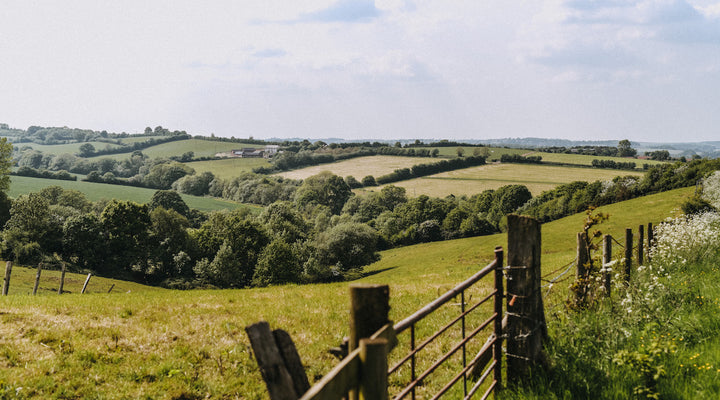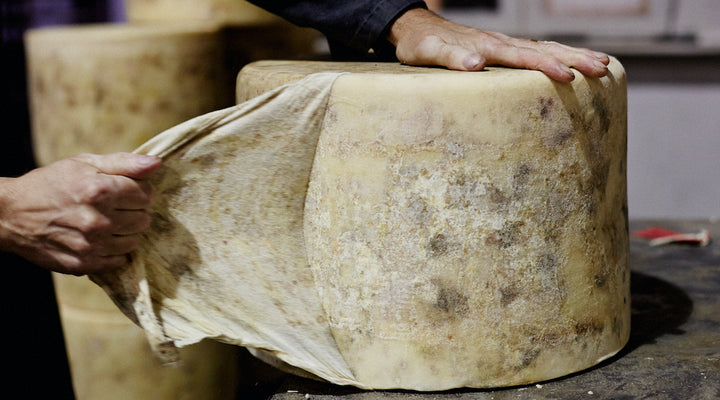The sun feel like it barely scrapes the horizon, giving dusk for much of the short day. Let’s hope for winter sun, so special to feel the light and warmth on your skin at this time of year. Grass is watery and wan. Field corners are the ruin of the summer’s glory. Trees are stark silhouettes. And for some plants, this is their time: cardoons in my garden vigorously giving me fleshy midribs, shepherds purse and chickweed actively growing, good wild foraging material that pop up vigorously in between my cultivated salad leaves that I nurse through this time.
It’s been mild, and the crops are over-lush, a target for aphids and mildews. This is where a flock of sheep would be good to run over and trim the winter-proud leaves. That wouldn’t really work, as in January, when the growth really slows down, we would end up feeding them the precious early bite that we are keeping overwinter for the cows to eating February. Still, the wheat barley and oat plants will be getting their roots down, holding the soil and feeding the life in the soil. We either feed their rich harvest to cows or sell them to buy back mixed cow feed.
Grass and red clover have worked so well this year, we’ve decided our crop rotation should be 2 or 3 years of grass and red clover, then wheat then barley then back to grass and red clover. It grows through the dry times, feeds the next crop, cattle can graze it or we can make it into winter feed, it nourishes the soil while it’s growing and feeds the next crop when it runs out of steam. It’s part of our aim to grow as much from our own resources as possible.
We are putting bales of silage out in the paddocks to hold the in-calf Spring Heifers over winter. Then we’ll put in Spring Wheat before reseeding with grass into the stubble.
We experimented with broadcasting grass seed into lightly cultivated stubble this summer and it’s worked so well that’s what we will do across the board this coming year. We are moving away from ploughing for sowing grass establishment after cereals. It’s expensive and literally turns the infinitely complex universe of the soil with its delicate interlinked communities upside down, which have to rebuild for the soil to work best.
The spring cows go on their eight week holiday from December, resting and restoring themselves while their calf grows big. This year, rather than stay out on fodder beet that was hard for soils and our team, they will go to some buildings we are renting a couple of miles away. The autumn cows are in full milk, and frolicking around looking for the bull. The most fertile and keenest will get a straw of sexed semen from a dairy bull, and everyone else gets a beef bull, either a straw of semen or if that doesn’t do the trick, they will get seen to by one of our elegant little Angus bulls.
It’s been an extraordinary year, in so many ways. The terrible events in Ukraine have sent milk and feed prices doubling, electricity prices times six and everything costing more. We’ve had a scary harbinger of a heating planet with the hottest year I remember. We fed scarce winter feed for a couple of months in the summer. Then we had a lovely golden autumn, where the grass grew and grew and near enough filled our stores up again. The challenges are making us rethink what we do to focus in on what we can produce from our own resources in crops and cows and cheese. We are planning to put solar panels to produce electricity to power the farm. Sadly, our roofs aren’t suitable: they are old and face the wrong way, so we will put the panels in the field next to the cheese store. My daughter Jane is coming back to the farm, bringing new ideas about how we respond to these times, reminding me of when I came back to the farm nearly 40 years ago, and my father came back thirty years before that.
We are thrilled to have landed five awards at the largest cheese-only awards on the planet! The World Cheese Awards were held on Wednesday in Newport, Wales where 4,434 cheeses from over 40 different nations were blind-tasted by a 250-strong judging team, including our very own Mary Quicke (pictured above). Our Mature Cheddar and Oak Smoked Goat's Milk Cheese won Bronze awards and our Lady Prue Cheese, Elderflower Cheese and Buttery Cheddar won Silver awards. The world feels a lot smaller when the international cheese community comes together, so it’s a great honour to represent Britain at the competition and bring a few awards back to our little corner of Devon.
I know we are all challenged with costs and uncertainty. Thank you for your support this year. Next year will be tough for the little shops and delis. Speaking to cheesemakers and retailers, at the World Cheese Awards, everyone is bracing themselves for a tough time. You can always give yourself a little treat of cheesy joy and pleasure when the world has gone crazy around us. That at least is reliable and affordable. Please support your small independent farm shops and delis and enjoy the fruits of our land.
I’m planning a Christmas cheeseboard of Vintage Cheddar, Smoked Cheddar, Devonshire Red, plus some luscious Baron Bigod and Colston Bassett Stilton. I’ll snaffle some of that magnificent Sandford Orchards Ice Cider and enjoy the dark evenings as a good opportunity for feasting.
Recipe: I’ve been having fun with leftovers, and Christmas is a good opportunity to be creative with them as we all cook more than we can eat on the day. I’ve been enjoying rehashing vegetables (leaf and root) and some leftover meat for flavour. I braise them in a frying pan with a knob of Quickes butter until they are piping hot and grate some mature cheddar over the top, and add 2 beaten eggs plus seasoning per person to the pan. I leave on a low heat to set. It makes a flavoursome, nourishing, healthy and really quick one pan supper. Shop Christmas Opening times including Saturdays.
Open as normal Monday - Friday 10am-4pm Open Saturday 3,10,17 December 10am-4pm Open Saturday 24 December 9am-1pm Closed from 1pm Saturday 24 December - Tuesday 3 January.

